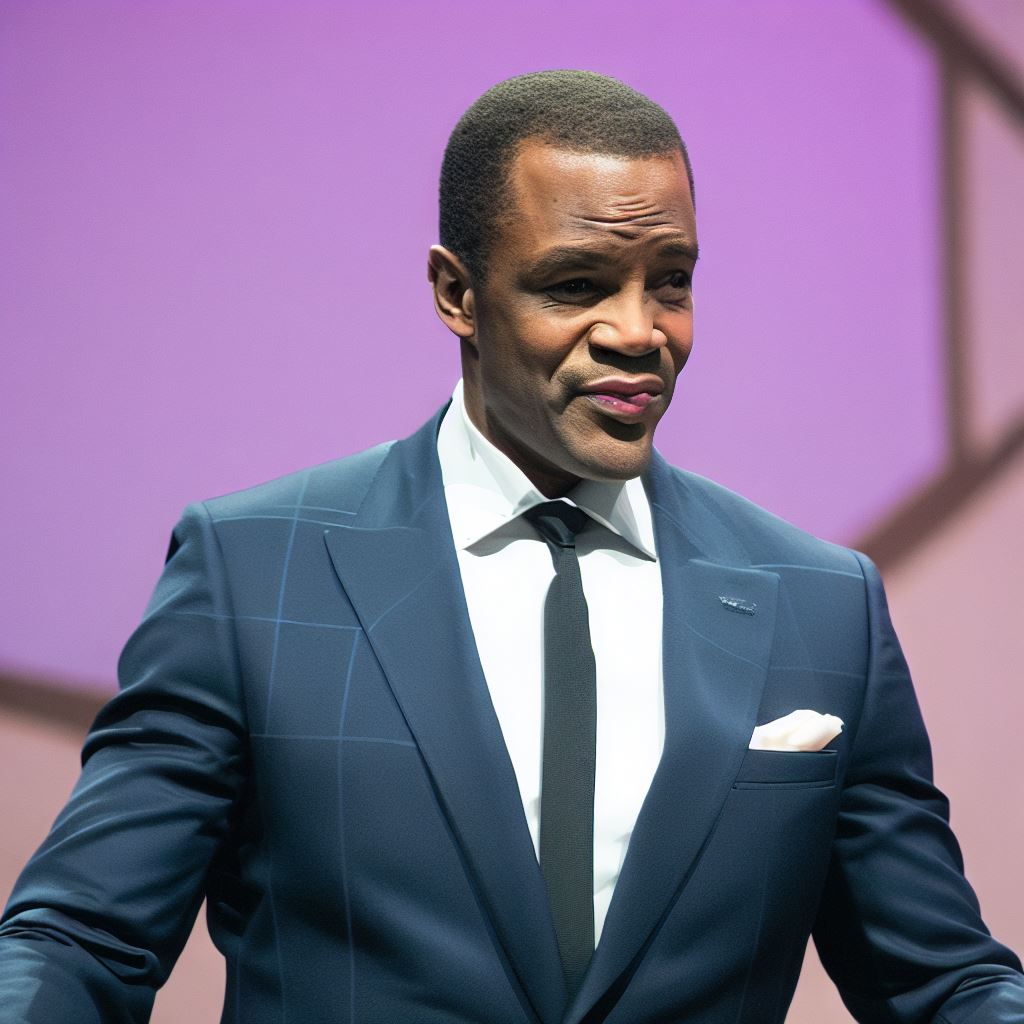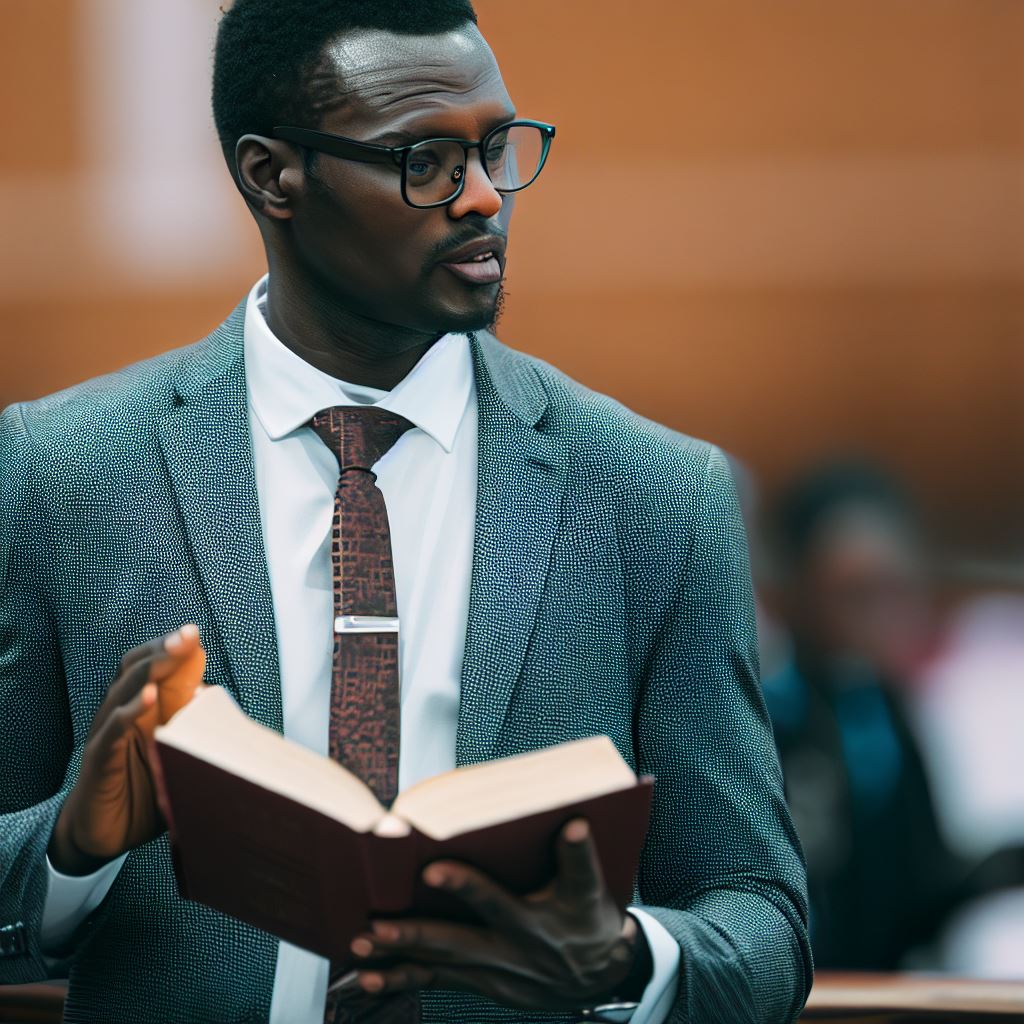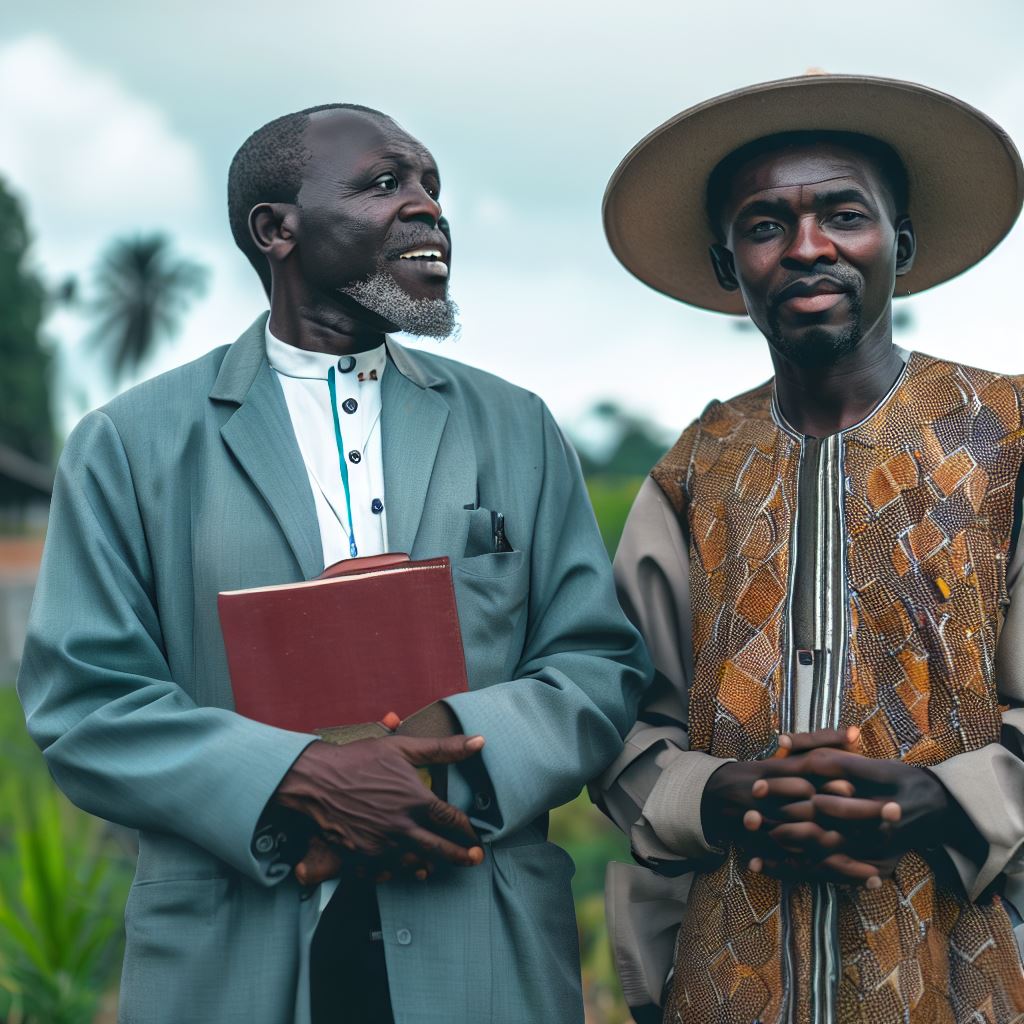Introduction
Nigeria Mega-Church Pastor Trend has been growing rapidly in recent years.
The purpose of this blog post is to delve into the insights surrounding this trend.
Brief overview of the mega-church pastor trend in Nigeria
- Mega-church pastors gain prominence.
- Lead vast congregations.
- Influence extends beyond the pulpit.
- Societal and political impact.
- Growing religious movement.
Purpose of the blog post: to explore the insights into this growing trend
- Uncover the mega-church phenomenon.
- Analyze factors driving growth.
- Examine the role in society.
- Impact on faith and culture.
- Share fascinating insights.
Historical Background
Origin of the mega-church phenomenon in Nigeria
- The rise of mega-churches in Nigeria can be traced back to the late 20th century.
- Initially, traditional churches dominated the religious landscape in Nigeria.
- However, with the advent of globalization, a new wave of Christianity started to emerge.
- Pentecostal and charismatic movements gained popularity, promoting a more vibrant and experiential form of worship.
- This shift led to the birth of mega-churches, which are characterized by their large congregations and influential pastors.
- The mega-church phenomenon in Nigeria was a response to the changing religious landscape and the desire for a more engaging form of worship.
Key influential figures who contributed to its growth
- Pastor E.A. Adeboye: He is the General Overseer of the Redeemed Christian Church of God (RCCG) and a prominent figure in the development of mega-churches in Nigeria.
- Bishop David Oyedepo: As the founder of Living Faith Church Worldwide (Winners’ Chapel), Bishop Oyedepo played a significant role in the growth of mega-churches.
- Pastor Chris Oyakhilome: He is the founder of Believers’ Loveworld Incorporated, also known as Christ Embassy. Pastor Chris has a massive following and impact.
- Pastor Tunde Bakare: He is the founder of the Latter Rain Assembly and has been vocal in advocating for social and political reforms in Nigeria.
- Pastor Matthew Ashimolowo: The founder of Kingsway International Christian Centre (KICC) has contributed to the spread of mega-churches through his influential teachings.
These influential figures established mega-churches with a focus on charismatic preaching, dynamic worship, and prosperity theology.
They attracted masses of followers seeking spiritual nourishment, prosperity, and a sense of belonging in a rapidly changing society.
The success of these pastors and their mega-churches can be attributed to various factors.
Firstly, their charismatic leadership and captivating preaching styles resonate with the aspirations and challenges faced by Nigerians.
They address societal issues, offer hope, and provide spiritual guidance.
Secondly, mega-churches provide a platform for self-expression and personal growth.
They offer various programs, including skill development, entrepreneurial training, and counseling services, which appeal to individuals seeking self-improvement.
Thirdly, the use of media and technology has been instrumental in the growth of mega-churches.
Television broadcasts, online streaming, and social media platforms allow pastors to reach a wider audience, both locally and internationally.
Furthermore, mega-churches often prioritize community development programs, such as healthcare facilities, schools, and welfare initiatives.
Read: Challenges and Triumphs: A Pastor’s Life in Modern Nigeria
Factors Driving the Trend
Cultural and religious shifts in Nigeria
- Nigeria has experienced significant cultural and religious shifts in recent years.
- Traditional religious practices have been challenged by the rise of Christianity.
- The influence of Western culture has led to a decline in traditional beliefs and practices.
- Many Nigerians now view mega-churches as a symbol of modernity and progress.
- There is a growing desire for spiritual fulfillment and a sense of belonging in a rapidly changing society.
Socio-economic factors fueling the rise of mega-churches
- The widening income gap in Nigeria has created a need for hope and prosperity.
- Mega-churches offer the promise of financial success through prosperity gospel teachings.
- People are drawn to the idea of being part of a community that can provide social and economic support.
- The growth of mega-churches has also created employment opportunities and boosted local economies.
- Investments from wealthy individuals and corporations have further fueled the expansion of mega-churches.
Influence of globalization on religious practices
- Globalization has brought about the spread of ideas and practices across borders.
- American-style mega-churches have gained popularity in Nigeria through the influence of globalization.
- Televangelism and the internet have made it easier for religious messages to reach a wider audience.
- Mega-churches in Nigeria have adopted modern marketing strategies to attract and retain members.
- The influence of Western religious practices has contributed to the rise of mega-churches in Nigeria.
Nigeria’s growing trend of mega-church pastors can be attributed to various factors.
Cultural and religious shifts, socio-economic factors, and the influence of globalization have all played a significant role in the rise of mega-churches in Nigeria.
As the country continues to evolve, it is likely that this trend will continue to grow and shape the religious landscape of Nigeria.
Read: Women in the Pastoral Profession: Nigeria’s Evolving Scene
Characteristics of Mega-Church Pastors
Charismatic leadership traits and styles
- Mega-Church Pastors possess exceptional charisma, commanding attention and inspiring followers.
- They exhibit strong communication skills, captivating audiences with their powerful preaching and impactful sermons.
- These leaders have a contagious enthusiasm that energizes their congregations and motivates them to action.
- Mega-Church Pastors are skilled at building relationships and connecting with people on a personal level.
- They have a magnetic personality that attracts individuals from diverse backgrounds to their churches.
Utilization of modern technology and media for outreach
- Mega-Church Pastors understand the importance of leveraging technology for effective outreach.
- They utilize social media platforms, websites, and live streaming services to reach a wider audience.
- Mega-Church Pastors embrace the power of podcasts, online videos, and smartphone applications to share their messages.
- They harness the potential of digital platforms to engage with their community and provide valuable resources.
- These pastors recognize that technology can bridge geographical barriers and enable global connections.
Emphasis on faith healing, prosperity gospel, and miracles
- Mega-Church Pastors believe in the power of faith healing and pray for miraculous interventions.
- They promote the prosperity gospel, emphasizing God’s blessings in the form of financial abundance and success.
- These pastors encourage their followers to sow seeds of faith through financial contributions to the church.
- Mega-Church Pastors often share testimonies of miracles, highlighting supernatural occurrences among their congregation.
- They create an atmosphere of expectation, inspiring their followers to believe in the unlimited power of God.
The characteristics of Mega-Church Pastors include charismatic leadership traits and styles, utilization of modern technology and media for outreach, and an emphasis on faith healing, prosperity gospel, and miracles.
These pastors possess exceptional charisma and communication skills, attracting a diverse following.
They leverage technology and media platforms to reach a wider audience and engage with their community.
Mega-Church Pastors believe in the power of faith healing, promote prosperity gospel, and share testimonies of miracles to inspire their followers.
Read: The Theological Education Pathway for Pastors in Nigeria

Role of Mega-Churches in Nigerian Society
In Nigeria, mega-churches have a significant impact on both the social and economic aspects of society.
Social and Economic Impact of Mega-Churches
- Mega-churches provide a sense of community and belonging to their members, offering support and guidance in various aspects of their lives.
- These churches organize social events, such as concerts and conferences, that bring people together and foster a sense of unity.
- Through their extensive outreach programs, mega-churches actively work towards improving the lives of the less privileged in society.
- Mega-churches often own businesses, including schools, hospitals, and media outlets, which contribute to the local economy.
- Large congregations in mega-churches generate a significant amount of revenue through tithes, offerings, and other donations.
- These financial resources are reinvested into the community through various developmental projects and philanthropic initiatives.
Political Influence and Engagement
- Mega-churches in Nigeria have immense political influence due to their large followings and persuasive abilities.
- They often serve as intermediaries between politicians and the people, making them valuable assets during elections.
- Politicians seek the endorsement and support of mega-church pastors who can sway the opinions and votes of their congregations.
- Some mega-church pastors hold positions of power and influence in government, further strengthening their political engagement.
- Additionally, these pastors use their platforms to advocate for social justice and address political issues affecting the nation.
- However, the political involvement of mega-churches has also sparked controversies regarding their motives and potential exploitation.
Controversies Surrounding Mega-Church Pastors
- Mega-church pastors often face criticism for their extravagant lifestyles, owning private jets, luxury cars, and mansions.
- Skeptics question the source of their wealth, fueling allegations of corruption and financial impropriety.
- Some mega-churches have been accused of manipulation and mind control, exploiting vulnerable individuals for personal gain.
- Controversial practices, such as faith healing and prophecy, have also been subject to scrutiny and skepticism.
- Instances of moral misconduct by mega-church pastors have tarnished the reputation of these religious institutions.
- Despite the controversies, mega-churches continue to play a significant role in shaping Nigerian society.
Mega-churches in Nigeria have a multifaceted impact on society, ranging from their social and economic contributions to their political influence and the controversies surrounding their pastors.
While they provide a sense of community and promote economic growth, their political engagement and controversies make them subjects of both praise and criticism.
Read: Roles and Responsibilities of Pastors in Nigeria Today
Challenges and Criticisms
Lack of transparency and accountability
- Mega-church pastors often face criticism for not being transparent about their finances and how they use the church’s resources.
- There have been cases where pastors have been accused of misappropriating funds for personal gain.
- This lack of transparency raises concerns among both followers and skeptics of the mega-church trend.
- Without proper accountability, it becomes difficult to trust the intentions and actions of these pastors.
Exploitative practices
- One of the major criticisms of mega-church pastors is their alleged exploitation of their congregation.
- These pastors often make extravagant financial demands from their followers, pressuring them to donate large sums of money.
- Some pastors even promise blessings and prosperity in exchange for these financial contributions.
- Such exploitative practices can leave followers financially strained and vulnerable.
Ethical concerns within the mega-church landscape
- There have been numerous ethical concerns surrounding mega-church pastors and their actions.
- Instances of sexual misconduct and abuse by pastors have tarnished the reputation of the mega-church movement.
- Some pastors have been involved in fraudulent activities and scandals.
- These incidents highlight the need for a stronger emphasis on ethics and moral conduct within the mega-church landscape.
Despite these challenges and criticisms, it is important to note that not all mega-church pastors engage in exploitative or unethical practices.
Many pastors genuinely strive to make a positive impact on their congregations and communities.
However, the actions of a few influential leaders can significantly shape the perception of the entire mega-church movement.
In order to address the challenges and criticisms faced by mega-church pastors, it is crucial to promote transparency and accountability.
Pastors should regularly disclose financial information and be open to external audits to establish trust with their followers.
Furthermore, mega-church leaders must prioritize ethical conduct and address any allegations of misconduct promptly and appropriately.
Engaging in open dialogue with critics and actively working towards the betterment of the mega-church movement can help overcome these challenges.
Ultimately, the growth of the mega-church trend in Nigeria can only be sustained by addressing the concerns and criticisms it faces.
By fostering an environment of transparency, accountability, and ethical leadership, mega-church pastors can regain the trust and support of their followers.
Moreover, this will pave the way for a more authentic and meaningful spiritual experience for all those who engage with the mega-churches.
Discover More: Clergy and Politics: An In-depth Look at Nigeria’s Scenario
Public Perception and Skepticism
Views and attitudes towards mega-church pastors
- Many Nigerians view mega-church pastors with admiration and respect for their spiritual leadership.
- Some people believe that these pastors have a direct connection to God and possess special abilities.
- Mega-church pastors are often seen as role models and sources of inspiration for their followers.
- However, there is also a segment of the population that holds a more skeptical view towards these pastors.
- Skeptics question the authenticity of their miracles, teachings, and financial practices.
Media portrayals and public opinion
- The media plays a significant role in shaping public perception of mega-church pastors.
- Some media outlets focus on the positive impact these pastors have on their communities.
- Others highlight scandals, controversies, and allegations of fraud involving mega-church pastors.
- Public opinion is greatly influenced by these media portrayals, leading to polarized views.
- Some people form their opinions solely based on what they read or hear in the media.
Balancing skepticism and religious freedom
- Skepticism towards mega-church pastors is essential to ensure transparency and accountability.
- It is crucial to question their actions and practices to prevent exploitation of vulnerable individuals.
- However, it is also essential to respect religious freedom and the beliefs of those who follow these pastors.
- Striking a balance between skepticism and religious freedom can be challenging but necessary.
- Society must find ways to hold mega-church pastors accountable without infringing on individuals’ rights to practice their faith.
Public perception and skepticism towards mega-church pastors in Nigeria vary greatly. While many view them with admiration and respect, others express doubt and skepticism.
The media plays a significant role in shaping public opinion, highlighting both the positive and negative aspects of these pastors.
Balancing skepticism with religious freedom is crucial to ensure accountability without infringing on individuals’ rights to practice their faith.
Find Out More: Celebrating Diversity: Different Sects in Nigeria’s Clergy
Reflections and Future Prospects
Evaluation of the mega-church trend’s sustainability
- The growth of mega-churches in Nigeria has been phenomenal, but is it sustainable?
- One key factor to evaluate the sustainability is the leadership and succession plans of these mega-churches.
- As the founding pastors age, will their successors be able to maintain and grow the mega-churches?
- Mega-churches heavily rely on charismatic leaders, and their absence could affect sustainability.
- Financial sustainability is another critical aspect that needs careful consideration.
- Are these mega-churches dependent on the generosity of their congregations, or diversified revenue streams?
- External factors such as economic downturns or government regulations can also impact sustainability.
- It is essential to conduct a comprehensive evaluation to determine the long-term viability of this trend.
Potential evolution and adaptations
- The mega-church trend in Nigeria is not static and will likely continue evolving.
- Adaptation to societal changes, technological advancements, and cultural shifts will be crucial.
- Mega-churches might increasingly utilize online platforms to reach a wider audience.
- Virtual services, online donations, and social media engagement can enhance their influence and reach.
- Furthermore, mega-churches may need to adapt their theology and practices to remain relevant.
- Incorporating modern teachings while preserving traditional values could attract younger generations.
- Flexibility and innovation will be key for mega-churches to navigate future challenges.
Implications for the Nigerian religious landscape
- The rise of mega-churches has already had a significant impact on the Nigerian religious landscape.
- Traditional churches may need to reconsider their approaches to compete with the appeal of mega-churches.
- Smaller congregations might struggle to survive as members flock to mega-churches.
- This shift could result in consolidation within the religious sector, with smaller churches merging or closing down.
- Furthermore, the influence and power of mega-church pastors can have broader societal implications.
- They may become influential figures not only in religious matters but also in politics and social issues.
- As mega-churches continue to grow, it is vital to monitor potential implications and ensure accountability.
- A balanced religious landscape that promotes healthy competition and diversity is crucial for societal development.
The mega-church trend in Nigeria raises important questions about sustainability, potential evolution, and implications for the religious landscape.
Evaluating the long-term viability of mega-churches, considering their adaptation to changing circumstances, and monitoring their influence are critical for the future.
With careful reflection and proactive measures, Nigeria can navigate this trend while fostering a thriving and diverse religious community.
Conclusion
Recap of key insights into Nigeria’s growing mega-church pastor trend
Nigeria’s mega-church pastor trend has witnessed significant growth in recent years, with charismatic leaders attracting mass followings.
These pastors often possess qualities that resonate with the Nigerian population, including prosperity gospel teachings and promises of divine intervention.
The rise of social media platforms has played a crucial role in the proliferation of these mega-churches, allowing pastors to reach a wider audience and gain more followers.
Critics argue that the trend is driven by greed and manipulation, as some pastors amass vast wealth and exploit their congregations financially.
However, proponents argue that mega-churches provide a sense of community and hope for millions of Nigerians facing socio-economic challenges.
The competition among mega-churches has led to innovative practices, such as utilizing technology for virtual worship and offering entrepreneurial training programs.
Despite controversies, mega-churches continue to thrive in Nigeria, reflecting the evolving religious landscape of the country.
Encouragement for further exploration and dialogue on the topic
As Nigeria’s mega-church pastor trend continues to grow, it is essential to engage in open conversations and critical analysis.
Further exploration into the motivations behind the phenomenon and its impact on Nigerian society can provide valuable insights.
Dialogue between religious leaders, scholars, policymakers, and the general public can lead to a better understanding of both the positive and negative aspects of mega-churches.
It is crucial to continue examining the role of social media in shaping religious practices and the potential consequences of such influence.
By fostering dialogue and encouraging research, Nigeria can navigate the complexities of its growing mega-church pastor trend and make informed decisions for its society’s well-being.




